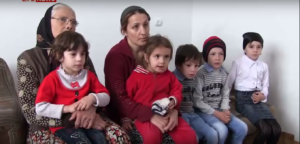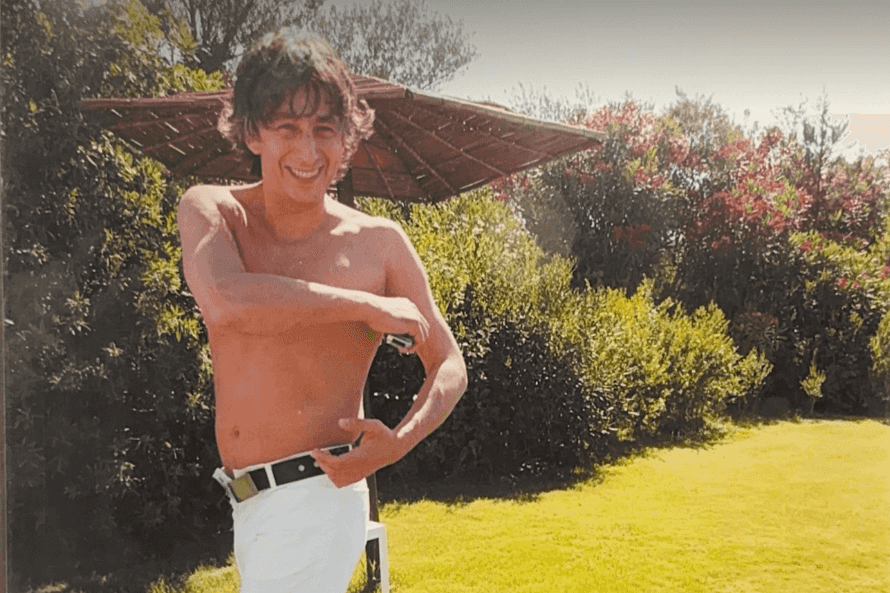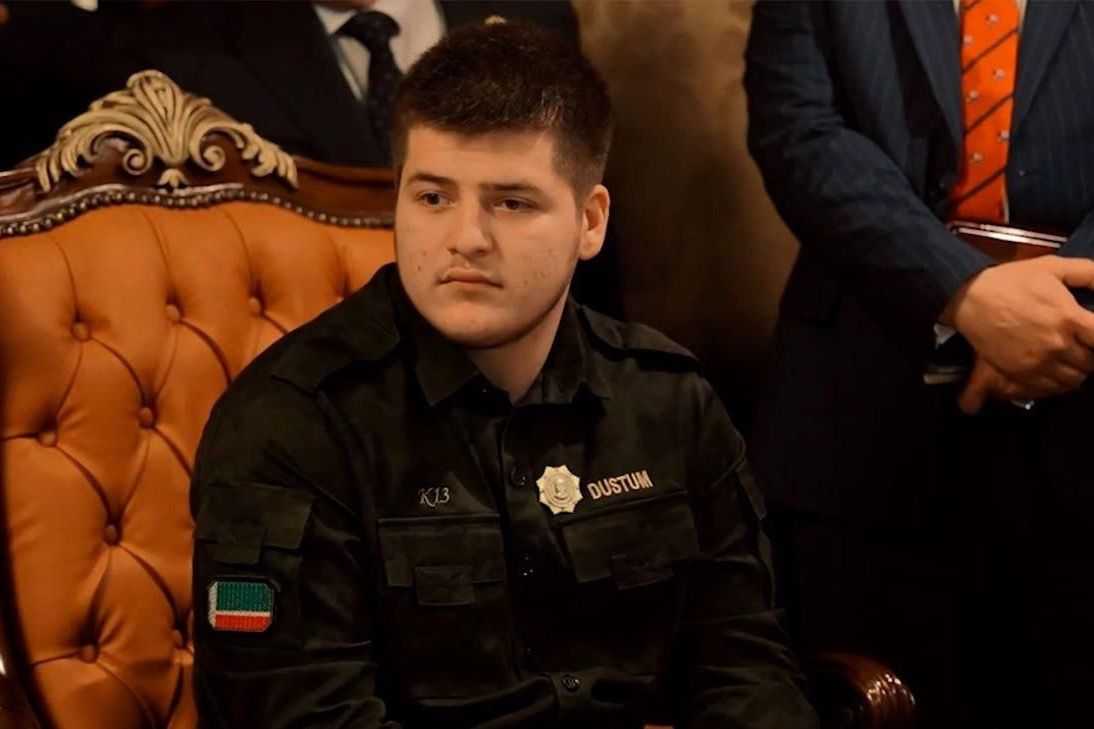

 Cases of child abuse are on the rise in Chechnya. Children are the victims of unprovoked aggression and violence from adults. Psychologists explain this is a society-wide post-war syndrome.
Cases of child abuse are on the rise in Chechnya. Children are the victims of unprovoked aggression and violence from adults. Psychologists explain this is a society-wide post-war syndrome.
Another criminal case concerning physical violence against children has recently been opened in Chechnya. The Russian Investigative Committee in Gudermessky District, eastern Chechnya, has opened an investigation against two residents of the village of Bachi-Yurt, a husband and a wife. They are accused of cruel treatment and physical abuse of the man’s two daughters, aged 10 and 11. It has been established that the father and stepmother regularly beat the girls, sometimes for no reason. The accused will remain in detention and the children affected, together with two younger sisters, have been transferred to the biological mother’s care.
Three years ago, there was a similar case in the village of Novyye Atagi, in Chechnya’s Shali District, which was so horrifying many people refused to believe it was true. A stepmother, in an attempt to get rid of her husband’s children from his first marriage, had inserted syringe needles into their bodies. Doctors removed six needles from the soft tissues of the man’s five-year-old son and two fragments of needles from the body of his four-year-old daughter.
The children’s plight only became known after they complained to their relatives about abdominal pain. The stepmother had been threatening the children with a knife, which was why they were afraid to complain to their relatives sooner. The investigation uncovered that she had also added shampoo to their food, when she fed them at all.
The stepmother — Makka Shabikhanova — aged 23, was arrested and confessed to everything during the initial investigation. The court, after taking into account her frank confession, sentenced her to 10 years in prison.
Chechen’s came out strongly against the stepmother, and many called for the maximum possible prison sentence to be imposed. Popular singer Makka Mezhiyeva even released an extended video asking for the perpetrator to be handed over to her so she could punish her herself.
Soon after, another stepmother and resident of Grozny was arrested for a similar offence. Twenty-three-year-old Marina Baysultanova was accused of a brutally beating her four-year-old stepdaughter, Markha Yusupova. The child was taken to hospital in critical condition and transferred to the intensive care unit in a coma. She had sustained a head injury, a fractured forearm, burns to the face, and numerous bruises on her body. A windpipe had to be surgically inserted into the child’s throat to allow her to breathe.
Baysultanova claimed in court that she beat the girl in a fit of passion and she did not recognise her guilt. The Oktyabrsky Court in Grozny determined that she was fully responsible for her actions, and sentenced her to nine years in prison.
These cases both occurred over the last few years. According to many, child abuse has become a chronic problem for the post-war republic, even if it only attracts attention after extraordinarily grave incidents, like the ones above.
It would seem that in Chechen society, which since ancient times has cultivated parenting as an important aspect of the development of the nation, such incidents would cause outrage and condemnation. However, cases of child abuse occur so frequently that the authorities simply have no time to respond to them all, or for society to condemn them.
People’s attitude to cases when parents, especially stepmothers, beat their stepchildren, is overwhelmingly negative. Yet for every case which emerges, the reaction becomes less pronounced. Most likely their sheer frequency is beginning to desensitise the public.
A number of psychologists, whom people have recently began to consult more frequently on the child abuse epidemic in Chechnya, have argued that excessive aggression against children is a symptom of post-war stress.
‘During the active phase of the war, people were trying to flee the fighting, and at this time their psyche was much stronger. Their bodies mobilised their internal forces to repel the panic attacks’, Marina, a psychologist from Grozny, told OC Media.
Now, according to the psychologist, when people are relatively more relaxed, they have to deal with other, no less serious, life problems, such as improving their living conditions and establishing a peaceful life.
‘From the moment when a person can sleep in their own home in the post-war republic, not flinching from loud noises, their brain relaxes and the body starts to act differently. All the experiences which people suffered during the time of stress begin to manifest themselves. This is primarily seen in excessive and unprovoked aggression, which is affecting mainly defenceless children’, Marina says.
The problem of violence against children, according to psychologists, also has social roots. Unsettledness in life, unforgiven offences, possible psychological traumas from childhood — all of these affects the formation of the human character.
Cruelty in modern Chechen society is a problem which deserves more attention, and neglecting it could lead to dangerous consequences for the nation, argues a psychologist named Eliza.
‘We are often approached by people asking for help in settling family disputes. Most frequently, wives complain about their tyrant husbands. This male aggression causes women to take out their anger on their children. This is how the vicious circle works. This usually happens in families where the husband and wife are aged 30 to 40. That is the generation that grew up during the war and saw its horrors during early adulthood. Their actions should often be seen in this context. This is the generation of war’, Eliza says.
The scale of family tragedy must be great for both the men and women to understand themselves the hopelessness of their situation and seek help. Adults understand that if the family falls apart, then the children will be the first ones to suffer. People seek help not only from psychologists, but also from mullahs. According to the psychologists we spoke to, it is important to find spirituality and live in harmony with oneself and the people around us, but material aspects of life are no less important.
‘When a man can’t provide for his family due to a difficult economic situation, then his credibility in the eyes of his wife and children falls. The economic situation in the republic is dire. In Chechnya it’s hard to even survive according to the bar which society has thoughtlessly raised. It is necessary to have a big house, a nice car, and so on. In the middle of all this, people do not care about their inner world — their emotional balance — this is very important. Our ancestors, despite their brutality, paid more attention to this. For example, they didn’t beat their children. They punished them, but didn’t beat them, because a man’s value is measured by his integrity and personal freedom. A man, who has experienced child abuse or lived under constant oppression from adults, will have trails of it left in his psyche’, Eliza says.
Chechen society, despite having survived two wars, hasn’t undergone psychological rehabilitation. There is no appropriate public programme to address this issue. Virtually all of the Russian soldiers who took part in hostilities in Chechnya were required to take courses in social rehabilitation after they returned to their homes. Chechens have been deprived of the same; and their children are the first to suffer.








